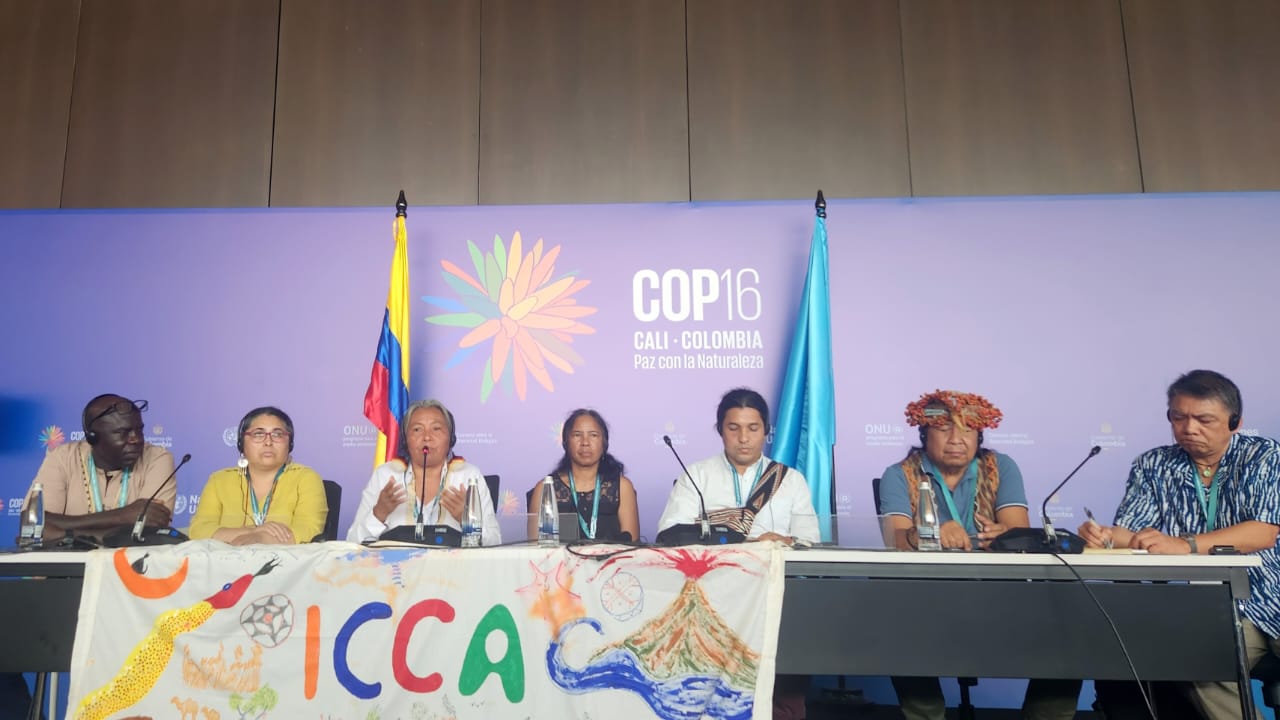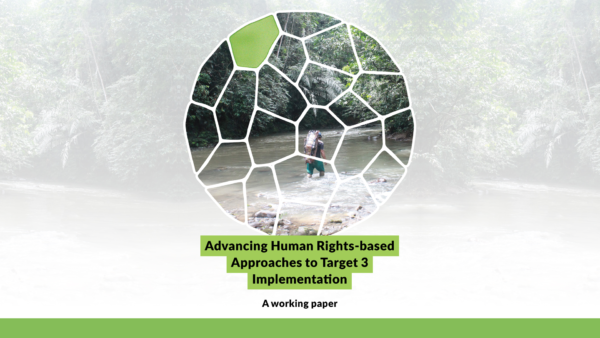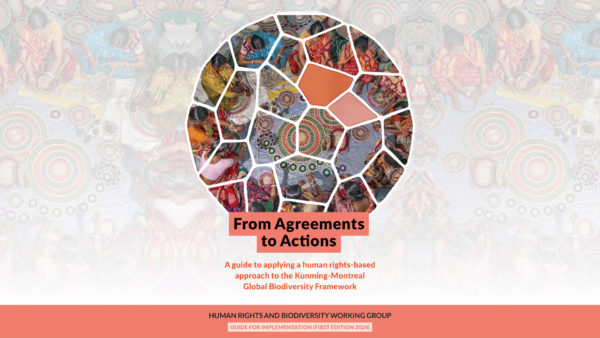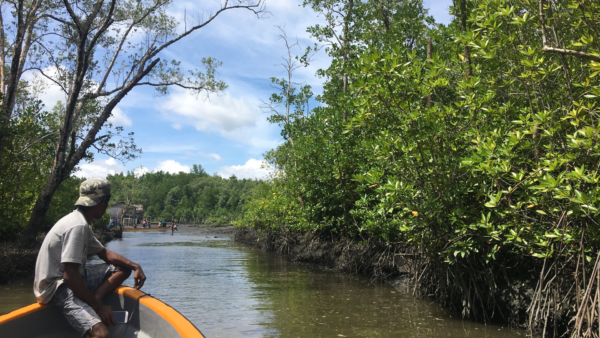We call on the international community to listen to our voices, recognize our authority over the territories we have cared for over generations, and support us with the necessary resources to continue being guardians of biodiversity
First published on 10/31/2024, and last updated on 02/27/2025
October 26, 2024, Cali, Colombia
We, the custodians of territories of life, reaffirm our commitment to defending our territories and cultures within the framework of the 16th Conference of the Parties (COP16) of the Convention on Biological Diversity (CBD). In this international space, where crucial issues such as the implementation of Article 8(j), financing mechanisms, and national biodiversity plans are addressed, we reaffirm our roles as leaders and rights-holders in conserving biodiversity and the well-being of humanity.
We are custodians of territories of life and global biodiversity
As affirmed in our manifesto for territories of life, we have demonstrated that our practices, knowledge, and worldviews are essential for conserving and restoring biodiversity. Our territories of life are sacred spaces where nature, culture, and the good life are intertwined and where our ancestral practices have sustained and protected ecosystems for generations.
At COP16, the importance of our role in negotiations regarding Article 8(j) is recognized. These discussions reinforce the need to ensure our full, equitable, and effective participation in biodiversity conservation, respecting and valuing our traditional knowledge and leadership in protecting the life and ecosystems we have inhabited for millennia.
We demand financing mechanisms for our territories of life
Our manifesto for territories of life clearly expresses the urgency of having financial mechanisms that allow us to conserve and protect our territories. At COP16, we are advocating for the establishment of mechanisms that ensure our direct access to the resources (including non-monetary support) necessary to implement our conservation strategies and prevent the exploitation and degradation of our lands.
For us, access to financing is not just a technical need; it is a matter of justice. Financial support for our conservation efforts also guarantees our self-determination, the continuity of our cultural practices, and our ability to pass on our knowledge to future generations.
National biodiversity plans: our rights and active participation
We have been clear in our demand that national biodiversity plans must include our contributions and recognize our role as custodians. Strategies and action plans must respect and reflect the deep connection we maintain between our territories and biodiversity, allowing us to govern and manage our lands according to our values and ways of life.
At COP16, we insist that these plans be updated inclusively and transparently, promoting the full participation of women, youth, and marginalized communities. Only in this way will it be possible to achieve the objectives of the Global Biodiversity Framework with an approach that values biocultural diversity.
An urgent call
Our manifesto for territories of life reminds us that our territories are not merely physical spaces; they are living entities, deeply interconnected with our cultures, languages, and ways of life. Protecting biodiversity is also our claim for rights, justice, and self-determination. At COP16, we call on the international community to listen to our voices, recognize our authority over the territories we have cared for over generations, and support us with the necessary resources to continue being guardians of biodiversity.
Conclusion
We, the Indigenous Peoples and guardian communities, reiterate our commitment to defending our territories of life and biodiversity. We urge the Parties and the global community to recognize our essential role in this collective effort, ensuring fair financing mechanisms and adopting policies that respect our rights and knowledge. Only then can we move towards a future where social, environmental, and climate justice is guaranteed for all life forms.



